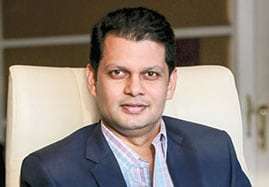
If Amit Bhosale, MD, ABIL Group is to be believed, several properties will soon be up for sale or auction, making brown field projects a more lucrative option than developing projects from scratch. He ticks off the reasons – high debt levels, gap between cash flows and debt, long gestation time to build hotels, etc. Given these circumstances, he’d rather buy semi-built or fully-built hotels. “It obviously depends on the market they are in, the value they offer, the price quoted, etc; but I definitely see opportunities in the next couple of years where some interesting assets will be up for sale,” Bhosale said. He cited the example of Hotel Sun-n-Sand Pune, which they acquired when it was auctioned. Apart from that, all four properties of ABIL Group – W Goa, The St. Regis Mumbai, The Westin Pune Koregaon Park, Le Méridien Nagpur – were green field projects. ABIL currently has around 1,000 keys in the country, including 400 in St. Regis Mumbai, 110 at W Goa, 140 in Le Méridien Nagpur, 137 at Sun-N-Sand Pune. “We have acquired land for properties in Navi Mumbai and Maldives,” said Bhosale. “The Navi Mumbai is likely to be a 350 to 450-key hotel, while the Maldives property will be a 60 to 70-key hotel.” The company will execute these projects next year once the design is completely finalised.
A MATURING MARKET
With the improving infrastructure in the country, Bhosale feels that the resort industry is developing well with higher ARRs and expects more resorts to open in the coming years. He also pointed out that most developers in the industry were non-hoteliers who have gone through a learning curve in the past six years and understand the hotel business better now. “Many are either putting projects on hold or are not executing as they had planned. This is because these were based on projections of analysis firms, and developers have understood that it is difficult to achieve numbers shown on paper. Keeping these figures in mind, many people took heavy debt and then realised that there is certain amount of capping of average room rents and occupancies. Hence, they now plan hotels taking realistic numbers into account,” Bhosale explained. He told how ABIL Group too learned the hard way when it opened Le Méridien Nagpur because everybody thought tier-II towns were expanding. “We realised that in these areas only land cost is cheaper but development cost is similar to tier-I cities. At the same time, spending power is much smaller, especially for MICE or weddings, and the cities lack good air connectivity. Our learning was that there isn’t much business potential currently in these B-class towns,” he said. The company has also learned to keep its debt to equity ratio at 1:1 to ensure profitability. Also, since it is involved in capital-intensive projects, it prefers working on one property at a time. “If you are working on two to three projects simultaneously it puts pressure on your equity contribution and cash flows. Hence, all three projects are either struggling or your debt levels go high,” Bhosale elucidated. This prudent approach is helping ABIL Group adopt a big-picture planning that is imperative in the development business. After all, speed might be hyped, but slow and steady always delivers the goods.

